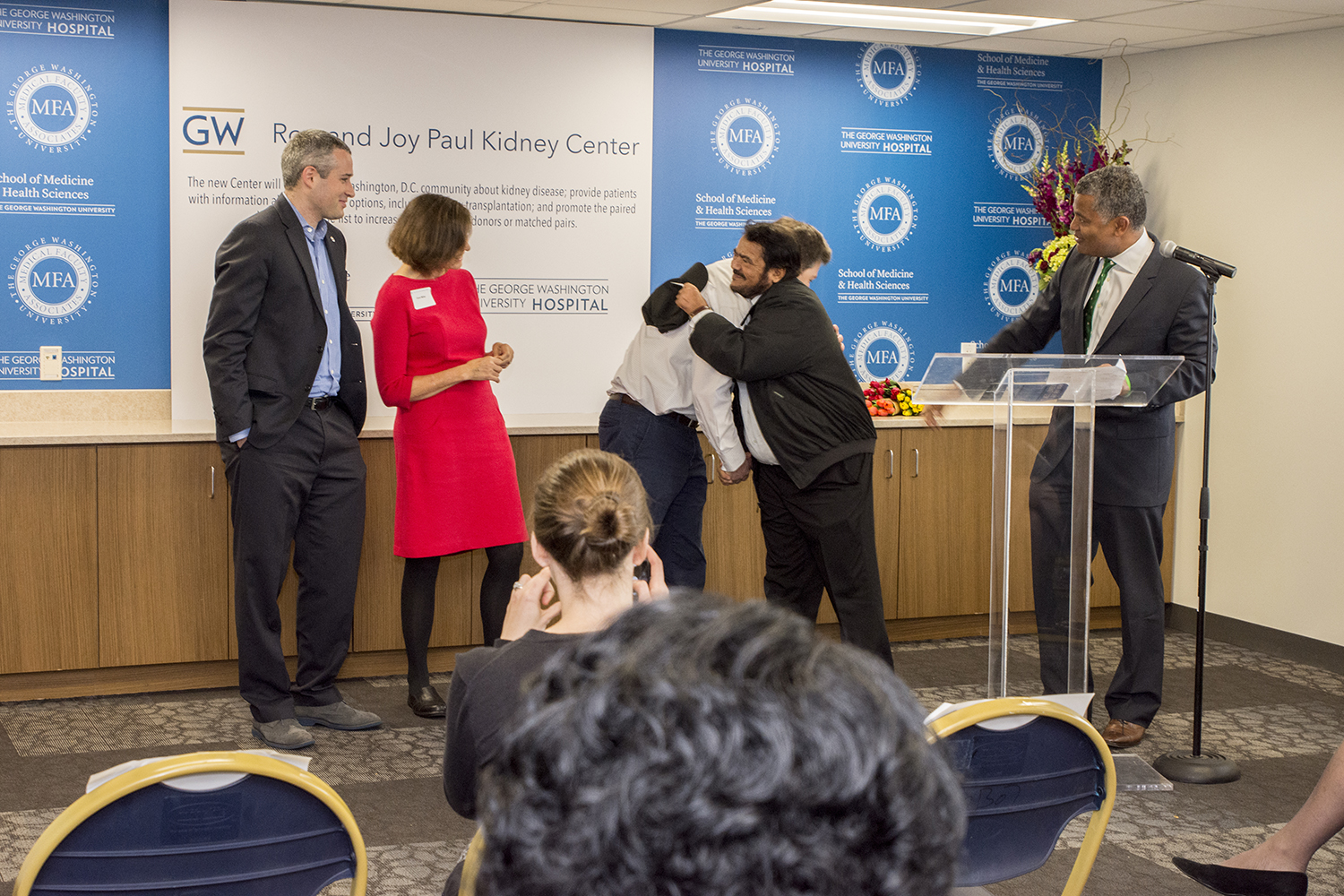
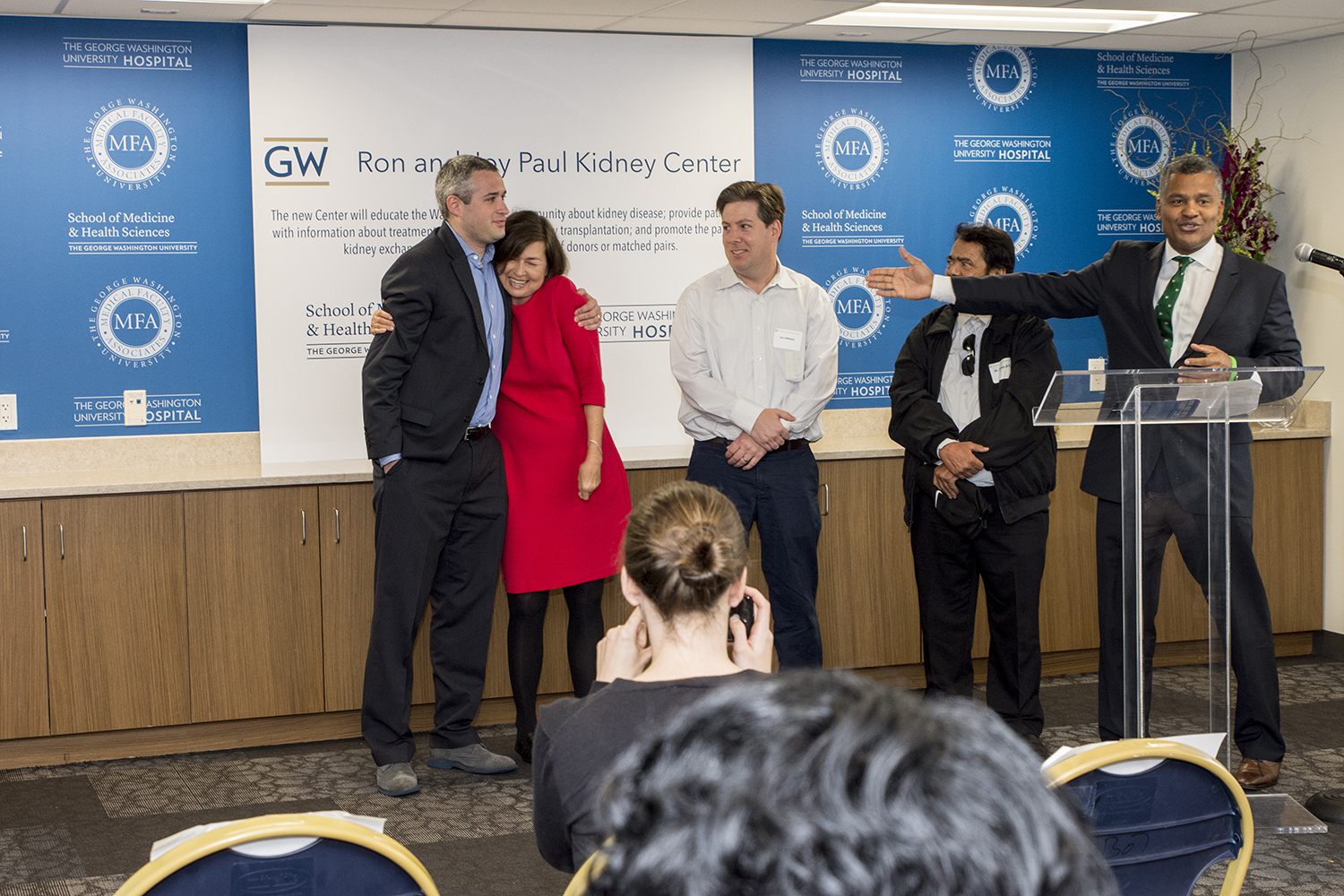
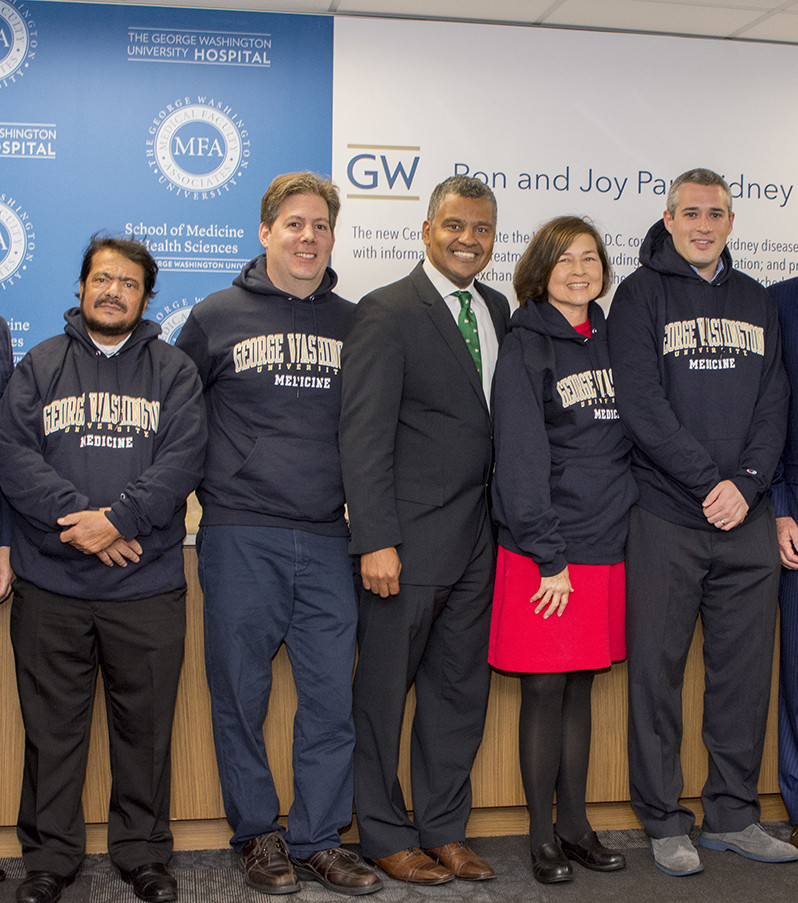
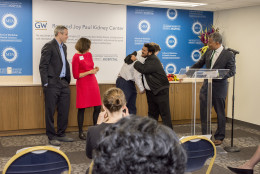
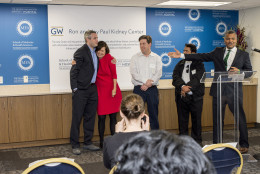
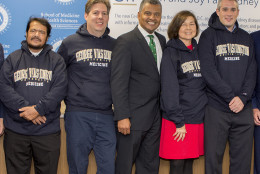
WASHINGTON — Three D.C. families are now linked for life.
They were strangers until their common battle with late-stage kidney disease unexpectedly brought them together in a rare three-way organ exchange.
“He is my brother now,” says Abdullah Al Ahmari, as he looks for the first time at James DiNatale, his kidney donor.
They met at a conference room at the George Washington University School of Medicine and Health Sciences, where doctors, dignitaries and patients gathered to launch the Ron and Joy Paul Kidney Center. The center will take on the growing kidney disease crisis in the D.C. metropolitan area.
Standing at Al Almari’s side in matching George Washington sweatshirts, DiNatale explained his initial plan was to donate a kidney to his wife, Carol Miller.
“We found out we weren’t going to be a match and that is when the wheels started turning for this swap,” he says.
A computer sorted through blood data on those needing transplants and loved ones who were willing to donate. Through that process, Miller found her perfect match — a young man named Jordan Gray who was in the registry to help his mom.
“I was shocked when I found out we had matches,” she says. “And even more shocked when I found out how closely I matched Jordan.”
She was extremely surprised because like all the patients involved in the swap, Miller was going for a second kidney transplant and was considered a very difficult match. All three were also considered “sensitized,” meaning they had built up antibodies over the years that increase the likelihood of rejection.
And yet these matches were made, with Al Ahmari’s wife completing the circling by becoming the donor for Jordan Gray’s mother in a series of back-to-back operations in June.
“It is crazy good, yes!” says Gray, adding he believes these kinds of pairings may well be the future of kidney transplantation.
That is certainly the hope of Dr. Keith Melancon, chief of the George Washington Transplant Institute, and a professor of surgery at the School of Medicine and Health Sciences.
“We have to come up with better ways of getting patient access to transplantation,” he says, noting that the D.C. area has the highest prevalence of kidney disease per capita in the nation.
There are believed to be roughly 7,000 people in the metro area on dialysis, and 1,700 on the waiting list for kidney transplants.
“We only have about 200 transplants being done here per year so there are a lot of people not getting access to transplantation,” says Melancon.
He says the need is great, and live donors — especially those willing to be involved in kidney exchanges — may be a big part of the answer.
Editor’s note: The spelling of James DiNatale’s has been changed.







